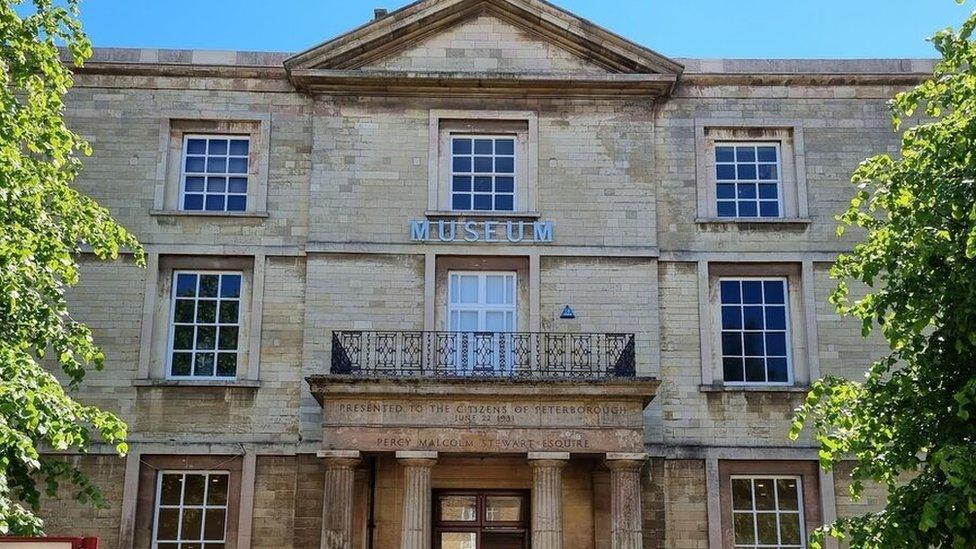First study of 'extraordinary' objects made by PoWs
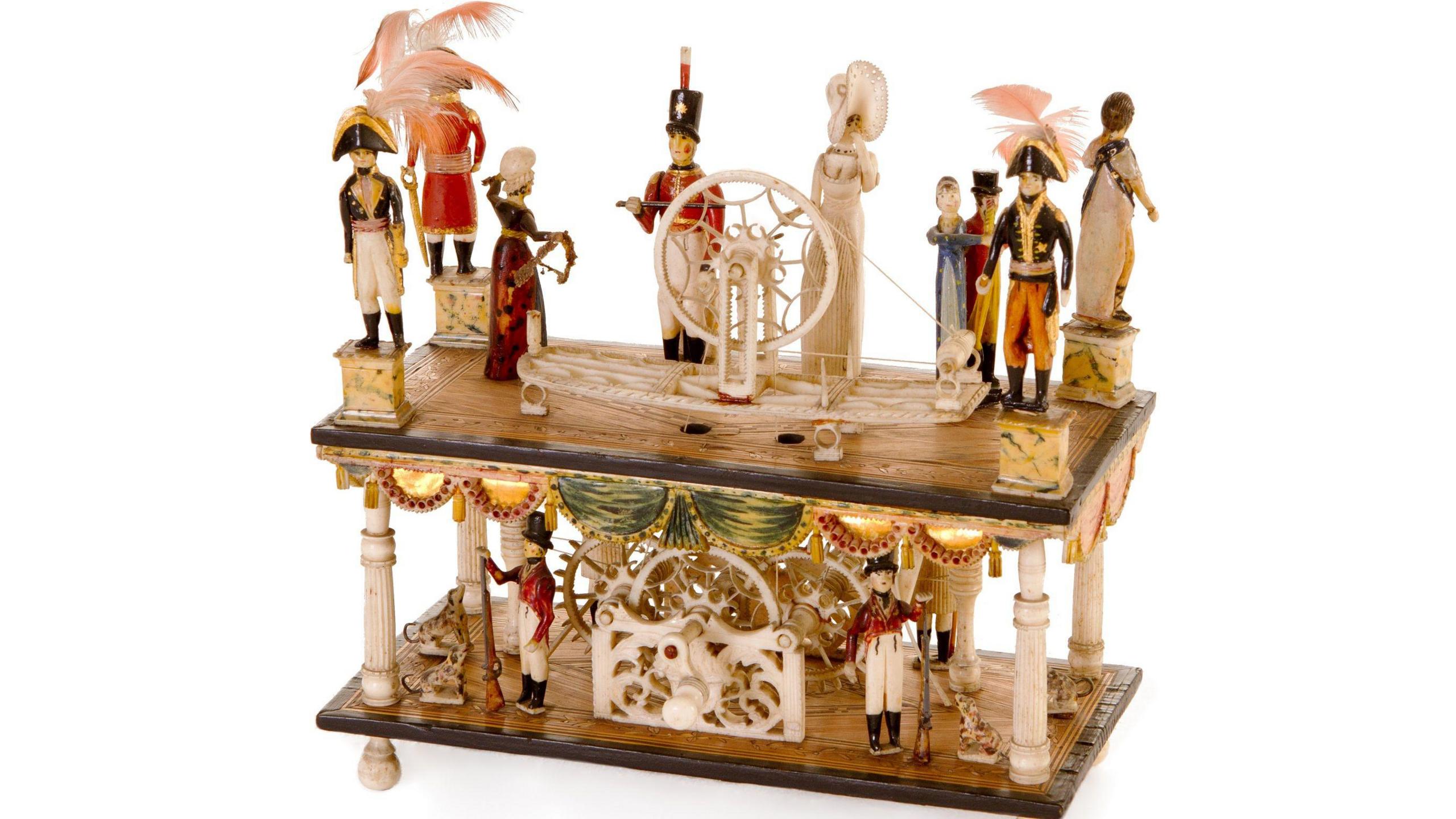
This moving mechanical model is made from bone, wood and straw
- Published
A study of objects made by inmates could help reveal what life was like inside what is thought to have been the world's first purpose-built prisoner of war camp.
The Norman Cross camp, near Peterborough, held mostly French prisoners of the revolutionary and Napoleonic Wars.
Some were highly skilled and used wood, bone and straw to make items including model ships, jewel boxes and tea caddies. The ingenious creations were sold to locals.
It is hoped the first project to focus on the artefacts, led by Anglia Ruskin University (ARU) and Peterborough Museum, could even reveal the identities of unknown prisoners.
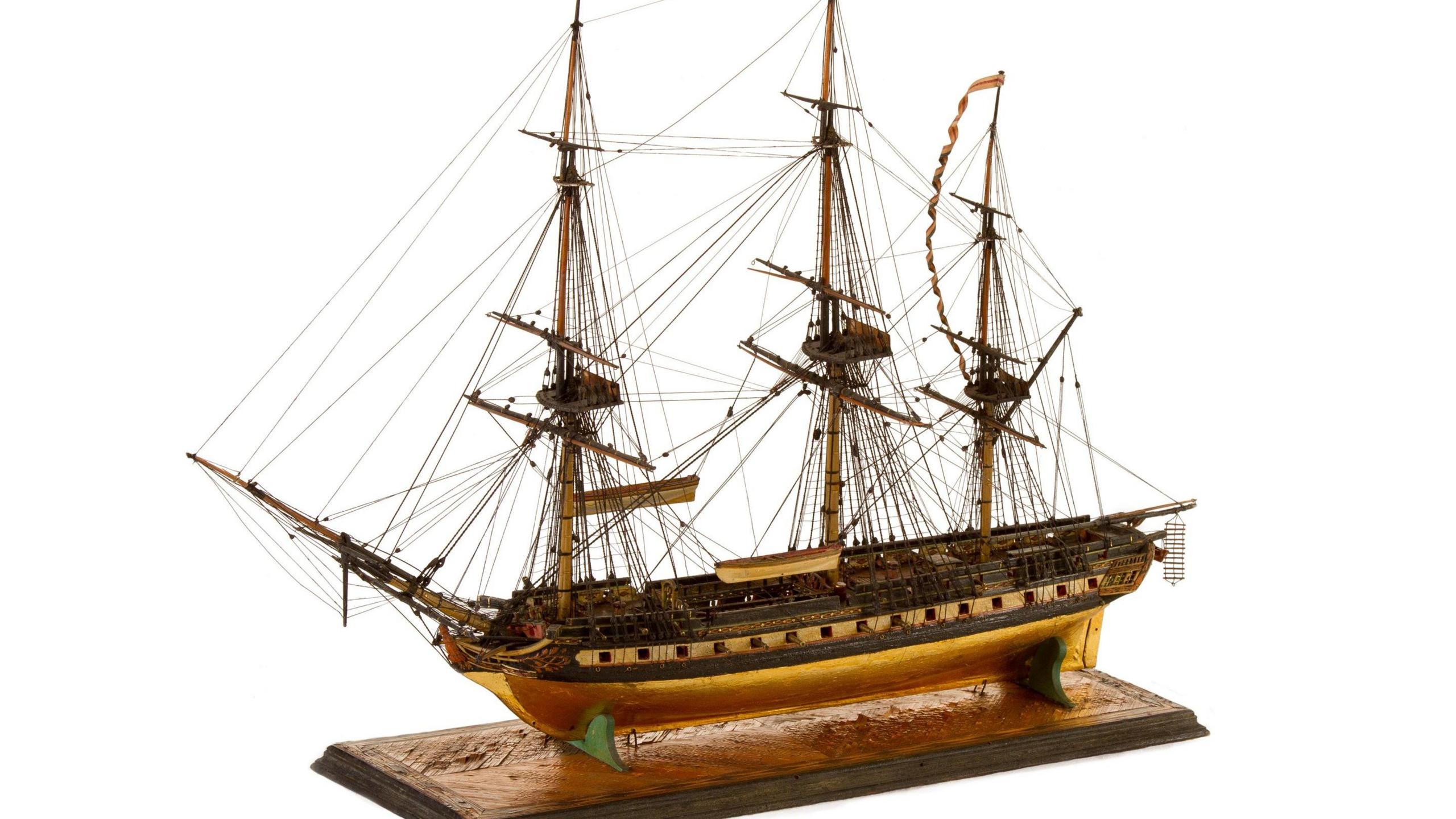
This model of a British frigate is carved from wood and features a figurehead waving a hanky
"Peterborough Museum has a fantastic collection of items that were produced at Norman Cross and this project aims not only to discover more about these objects, but also the prisoners of war who made them, and the people who purchased them at the time," said project supervisor Professor John Gardner, from ARU.
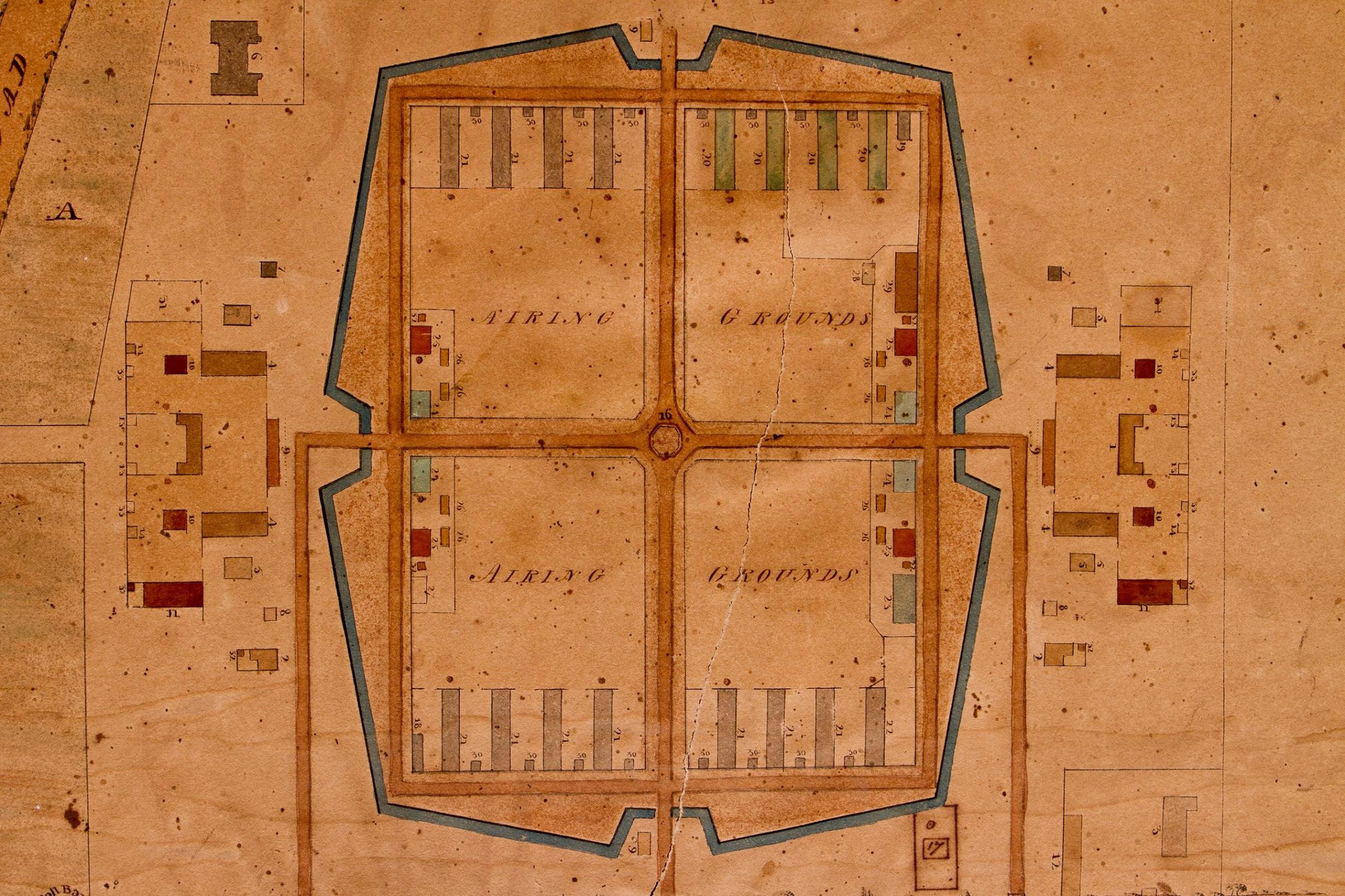
A map of Norman Cross, believed to be the world's first purpose-built prisoner of war camp
Built in 1796 and largely demolished by 1816, Norman Cross, between the villages of Folksworth, Stilton and Yaxley, was the first purpose-built prison, then known as a depot, for French prisoners.
Inmates could sell their artefacts at the local market or at the prison gate. In return, they were allowed to buy food, tobacco, wine, clothes or materials for further work.
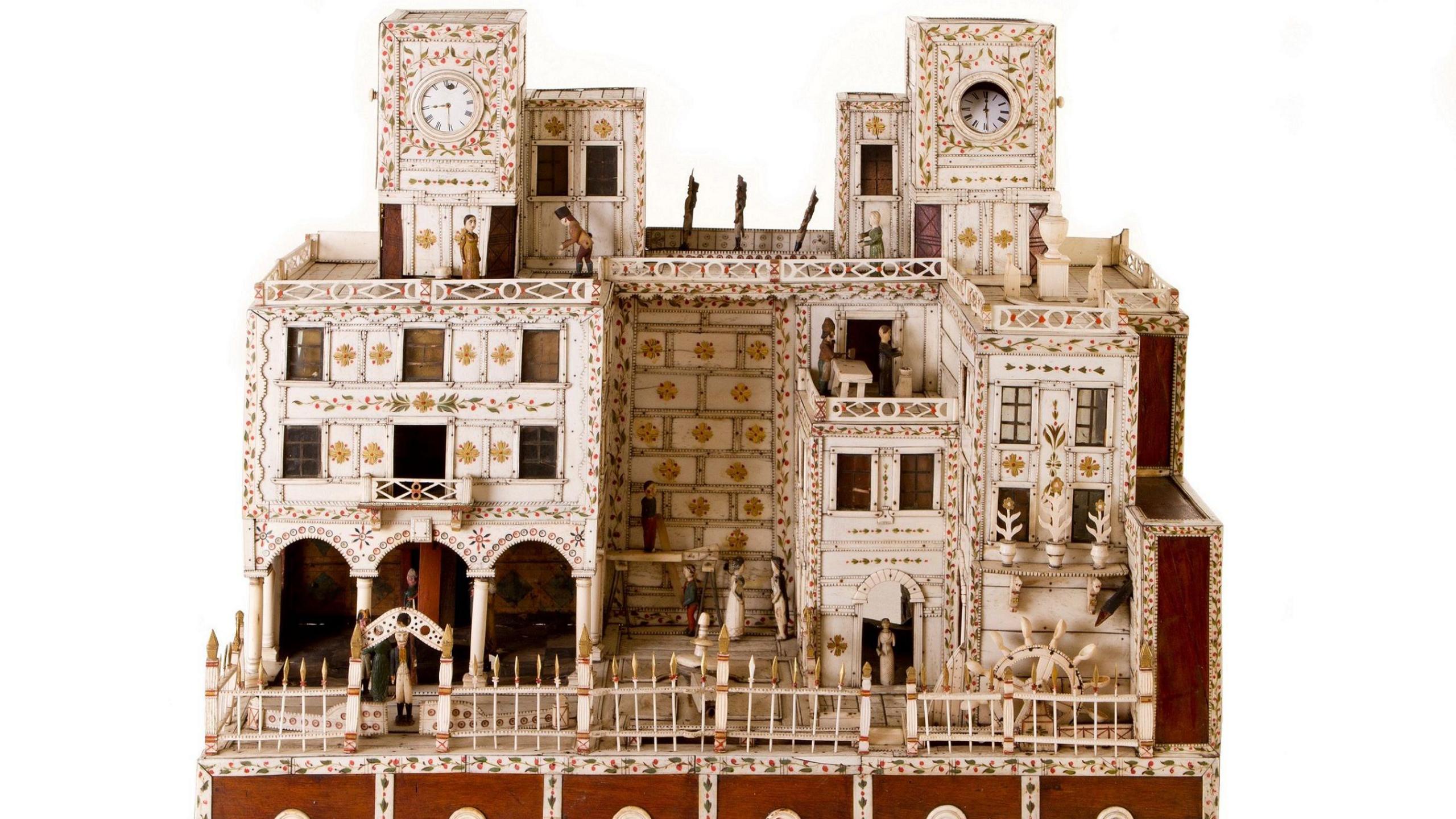
A model of a chateau, carved from bone, which comes complete with soldiers on a rotating wheel
Peterborough Museum holds more than 800 Norman Cross creations.
Museum heritage manager Sarah Wilson said: “The hundreds of items held in Peterborough are a legacy of the world’s first prisoner of war camp. Yet despite their significance the collection has not been researched in depth.
“Now, for the first time ever, the museum is delighted to be working with Anglia Ruskin University on research that focuses solely on these extraordinary objects.”
Got a story? Email eastofenglandnews@bbc.co.uk, external or WhatsApp us on 0800 169 1830
Related topics
More stories like this
- Published24 April 2024
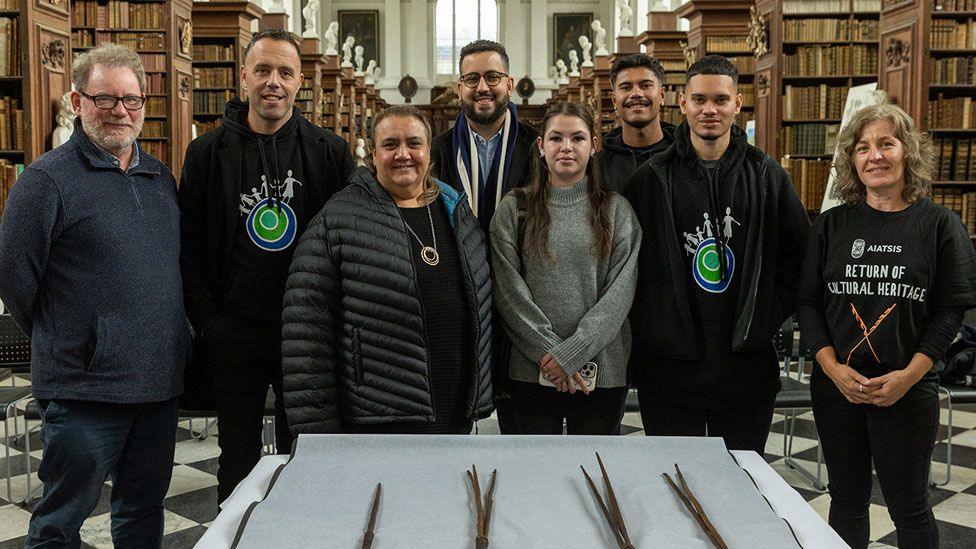
- Published23 April 2024
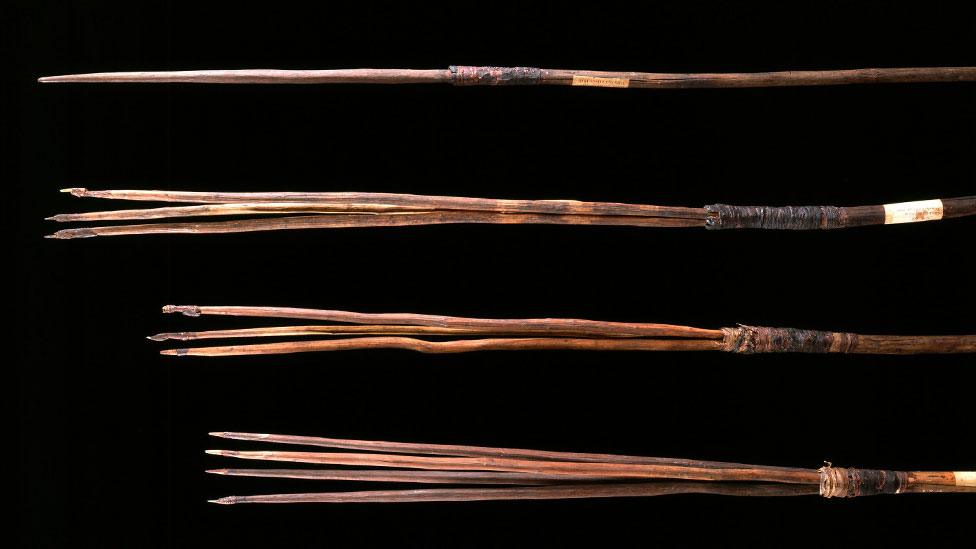
- Published20 September 2023
